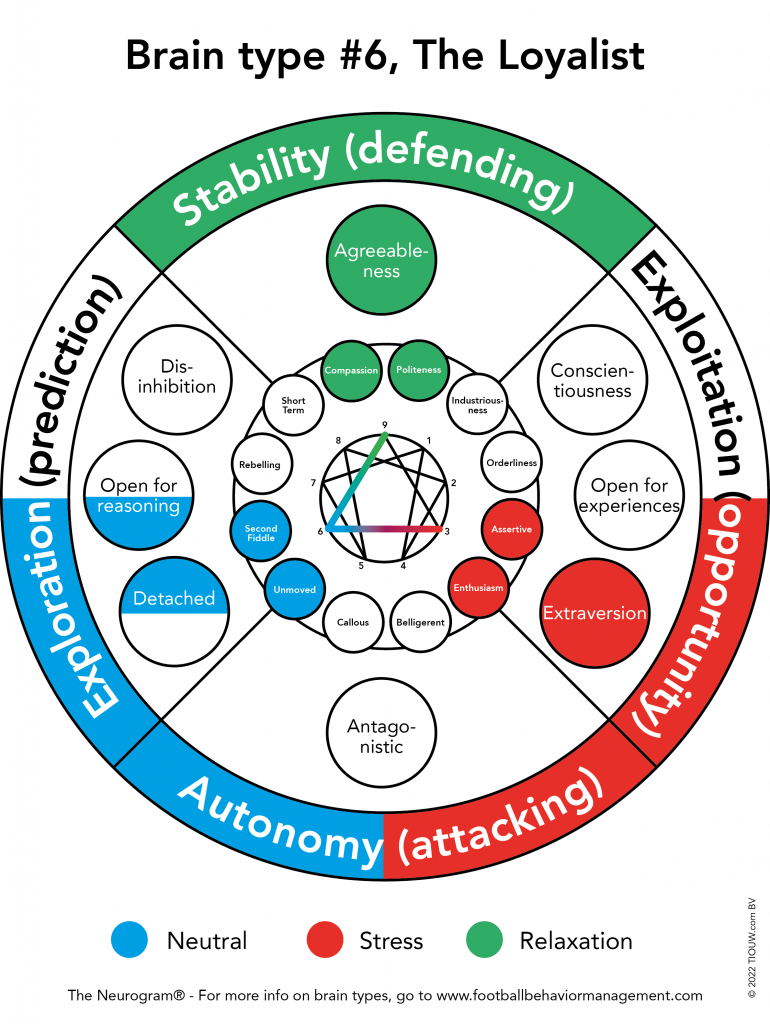
Autonomy
Tony Cascarino, a retired Irish footballer, scores high on autonomy due to several reasons:
- Independent Decision-making: Throughout his career, Cascarino demonstrated a capacity to make independent decisions. Whether it was choosing to play for Ireland through his adopted nationality, despite being born in England, or making key decisions about transfers during his career, he often displayed a degree of independence and autonomy.
- Self-reliance on the Pitch: On the pitch, Cascarino was known for his ability to play as a lone striker, relying on his own skills and instincts to score goals. This demonstrated a level of self-reliance, a key aspect of autonomy.
- Post-football Career: Following his retirement from professional football, Cascarino transitioned into a career as a football pundit and writer. The ability to successfully navigate a career change and establish oneself in a new field often requires a high degree of autonomy.
- Public Commentary: As a pundit and columnist, Cascarino has often shown a willingness to voice his own opinions, even when they may be unpopular or controversial. This suggests a level of autonomy in his thinking and a willingness to stand by his own convictions.
Exploration
Tony Cascarino scores high on Exploration due to various aspects of his career and personal traits:
- Career Moves: Throughout his career, Cascarino played for a range of clubs across different leagues and countries. His willingness to move and adapt to new teams, styles of play, and cultures indicates a high level of exploration.
- Playing Style: Cascarino was known for his dynamic playing style. He was a forward who was willing to venture into different positions and make unexpected moves to create scoring opportunities, indicating a willingness to explore different strategies on the field.
- Post-football Career: After retiring from professional football, Cascarino transitioned into a career as a football pundit and columnist, demonstrating a willingness to explore new career paths and professions.
- Opinions and Analysis: In his role as a pundit and columnist, Cascarino is known for his insightful and often novel analysis of the game. His willingness to explore and present new perspectives and ideas further indicates a high level of exploration.
Detached
- Composed Demeanor: Cascarino has been known for his calm and composed demeanor both on and off the field. He often maintained a level of emotional distance during high-pressure situations, which could be seen as a form of detachment.
- Independent Decision-making: Cascarino demonstrated independence in his career, making decisions that were best for him, even if they were unpopular. This might be seen as a form of detachment, as he was not overly swayed by the opinions or expectations of others.
- Post-football Career: Cascarino transitioned to a career as a football pundit and writer after his playing career ended. His ability to objectively analyze and critique games and players, including those he played with or against, could indicate a level of professional detachment.
- Private Life: Cascarino has managed to maintain a relatively private personal life, despite being a public figure. This could be seen as a form of personal detachment.
Openness for Reasoning
- Analytical Punditry: As a football pundit, Cascarino is known for his insightful analysis of games, indicating a strong ability to reason and understand the complexities of football strategies and tactics.
- Career Decisions: Throughout his playing career, Cascarino made a number of significant career decisions, such as moving between clubs and countries. These decisions likely required a high degree of reasoning and consideration of various factors, such as the style of play, cultural differences, and career progression opportunities.
- Adaptability: Cascarino’s ability to adapt to different teams, playing styles, and even career paths (from professional player to pundit) suggests a willingness to learn and understand new situations, which is a key aspect of openness to reasoning.
- Public Commentary: In his public commentary and writing, Cascarino often presents well-reasoned arguments and perspectives, further indicating his ability to think critically and reason effectively.
Unenthusiasm
- Reserved Demeanor: Cascarino is known for his composed and somewhat reserved demeanor, both on and off the field. While this can be a strength in maintaining composure under pressure, it might also be interpreted as a lack of enthusiasm, particularly when compared to more outwardly emotive personalities.
- Candid Reflections: Cascarino has been candid about the challenges and pressures of professional football. His honest reflections about the tougher aspects of the sport might be interpreted as a lack of enthusiasm by some.
- Objective Analysis: In his role as a pundit, Cascarino provides balanced and objective analysis, rather than being overtly partisan or emotional. This professional approach could be perceived as unenthusiastic, especially by those who are used to more passionate displays of support or criticism.
Submissive
- Team Player: Cascarino was known for being a strong team player on the field. He often prioritized the team’s success over individual glory, which could be interpreted as a form of submissiveness, in the sense of willingly accepting the role designated to him for the good of the team.
- Respect for Authority: Throughout his career, there have been instances where Cascarino has shown respect for the decisions of coaches and managers, even when these decisions may not have been in his personal favor. This willingness to accept and abide by the decisions of authority figures could be interpreted as submissiveness.
- Adaptable Playing Style: Cascarino was known for his ability to adapt his playing style to fit different teams and systems. This adaptability could be seen as a form of submissiveness, in the sense of adjusting his own preferences and style for the benefit of the team.

Leave a Reply